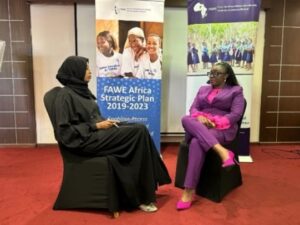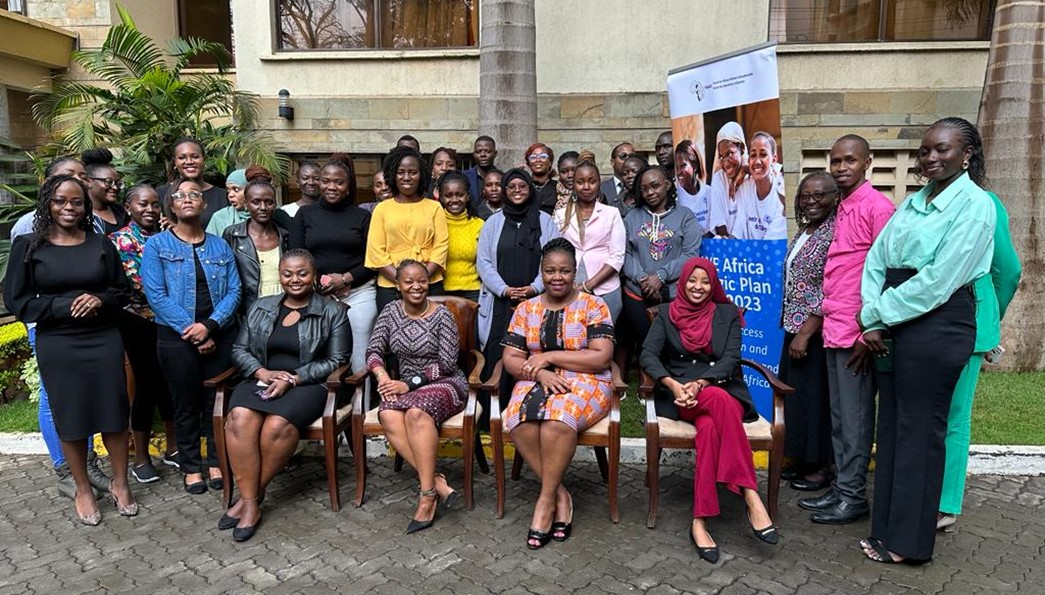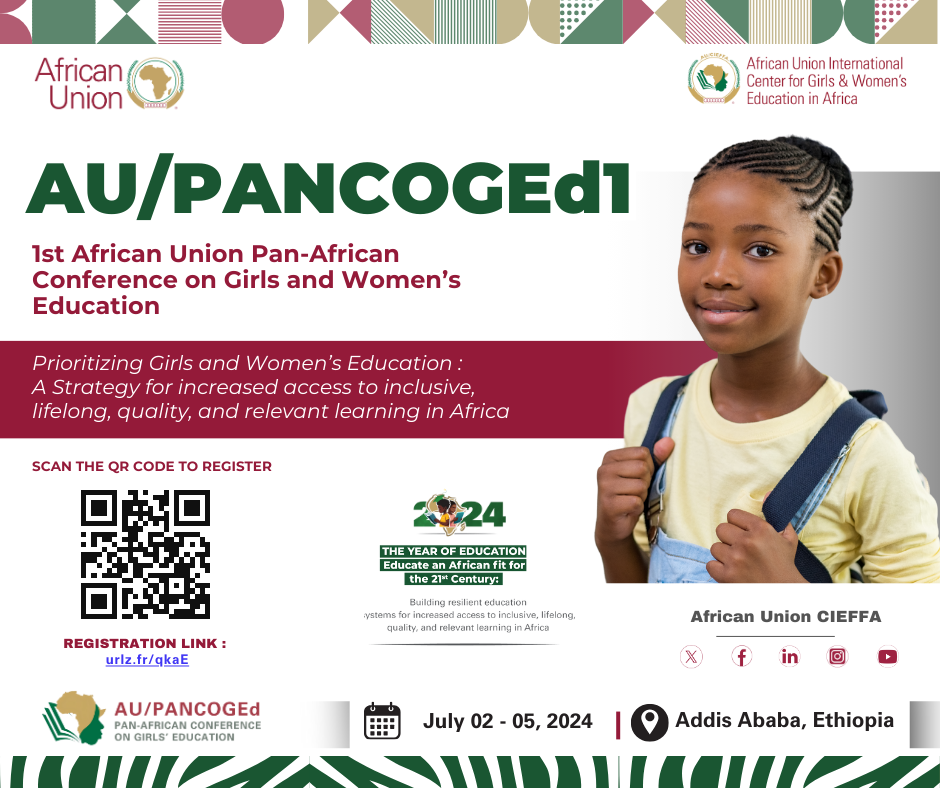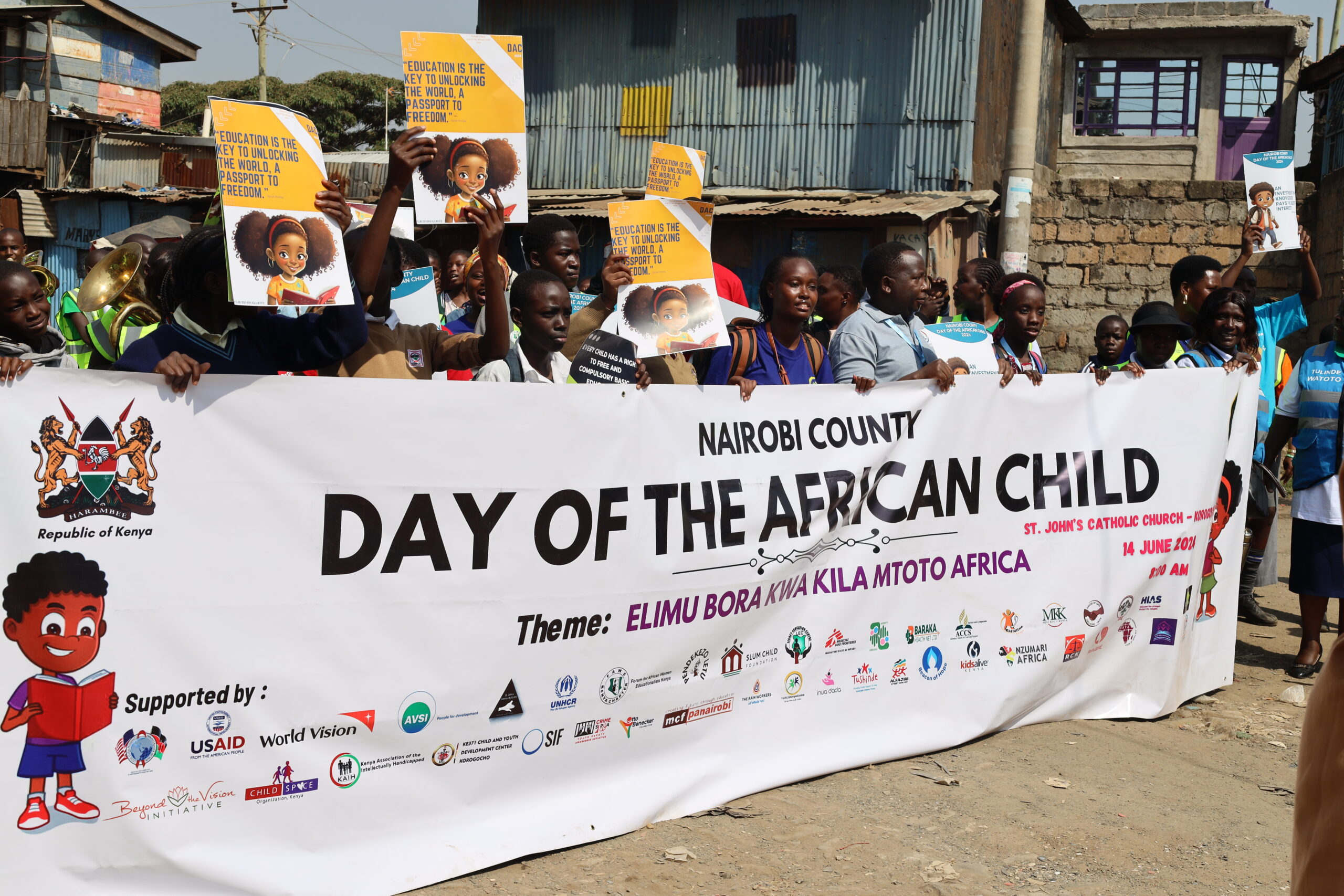By Emily Buyaki, Communication Officer FAWE Africa & Olive Aseno, Communication Officer International IDEA.
On the 4th and 5th of October 2023, the Forum for African Women Educationalists (FAWE) convened a strategic 2-day gender responsive training session with select Kenyan journalists, editors and social media influencers drawn from various Kenya television, print media and radio stations.
The training brought together 39 participants (32 female and 7 male) from various media houses, FAWE, International IDEA, FEMNET, Association of Media Women in Kenya (AMWIK), and women politicians. The main objective of the training was to establish a pool of journalists and social media influencers who are gender responsive and will objectively report stories on women in politics.
Women in politics have been on the receiving end when it comes to media framing and agenda setting in the political arena because leadership is often believed to be a male function in the world today. The narrative is however changing with more women in Kenya coming forth to vie for leadership positions.
Media framing entails constructing a message to achieve a deliberate effect on the receiver, and it has a great impact on the perception of the subjects covered, especially for women in politics.
Certain angles of their stories of triumph and losses at the political arena have been misconstrued to reveal a biased and very sensational agenda by the media.
“Media is a very necessary and powerful tool in women’s participation in politics. The goal of this training is to ensure that each of you present is better equipped to contribute to more inclusive and gender sensitive reporting.” Said Ms. Teresa Omondi-Adeitan, Deputy Executive Director and Head of Programmes, FAWE Africa. In a bid to advocate for proper reporting, it is important that coverage of women in politics be done from an informed point of view, steering clear of sensationalism.
The rigorous media training sessions entailed unpacking gender and the meaning of gender in the media space, role of gender responsiveness in politics, a media scan on popular newspapers and interview role plays.
To ensure that the media framing and agenda setting is balanced and objective especially for women in politics, it is important to incorporate international, regional and national laws and rights-based tools.
The training session was graced by Nominated Senator Gloria Orwoba. In her remarks to the journalists, she said that women politicians need capacity building on how to engage the media because being politically vibrant does not necessarily qualify one to know how to approach the media.
The sensationalism based on stories framed by the media drowns their voice and dilutes the transformative political agenda that women have set. The media should be focused on legislation agenda that women are pushing and not be intrusive in their personal lives.
Take for example, Ms. Hezena Lamaletian, the nominated senator for the Youth under the Orange Democratic Movement (ODM) who was labelled by the media as a beauty without brains. The media further highlighted that she is the least active senator when the first Kenyan parliamentary scorecard of the 13th parliament covering the period between September 29, 2022 to June 30, 2023 was published.
There is also the aspect of sponsorship by rival male politicians who want to sponsor a narrative to counter the progress that women politicians have made, added Senator Orwoba.
Senator Orwoba further alluded that ‘When a woman is passionate about politics, it is framed from the lens of sheer excitement that will eventually fade off, but when a man is passionate about politics, they are deemed assertive.’’ “ ‘Beauty with brains’ label, which has been used to describe women in politics, is not applied to men by labelling them as ‘handsome with brains’. Labels are placed on women to malign them and enhance the narrative of tokenism to validate the presence of women in the political space, even though women rightfully earned their space in the political platform.’’ Senator Orwoba further noted that she tabled 6 bills in parliament, but the one that can be fashioned in a sensational aspect one was what was espoused by the media. The other bills were silenced.

Ms Josephine Mwangi, the programme officer of International IDEA concluded the meeting with her closing remarks where she emphasised the need for journalists and social media influencers to pursue positives stories about women who are bringing positive change in society. She also encouraged the journalists and social media influencers to seek opportunities from organisations such as FAWE that are ready to help them tell positive stories about women, especially women in politics. She further thanked all participants and officially closed the training.
Photo: Ms. Fathiya Nur from the Standard Media Group engages Senator Gloria Orwoba in a mock interview.
Feature photo caption: Group photo of the participants and member of staff from FAWE, Int. IDEA, FEMNET and AMWIK.






Leave A Comment